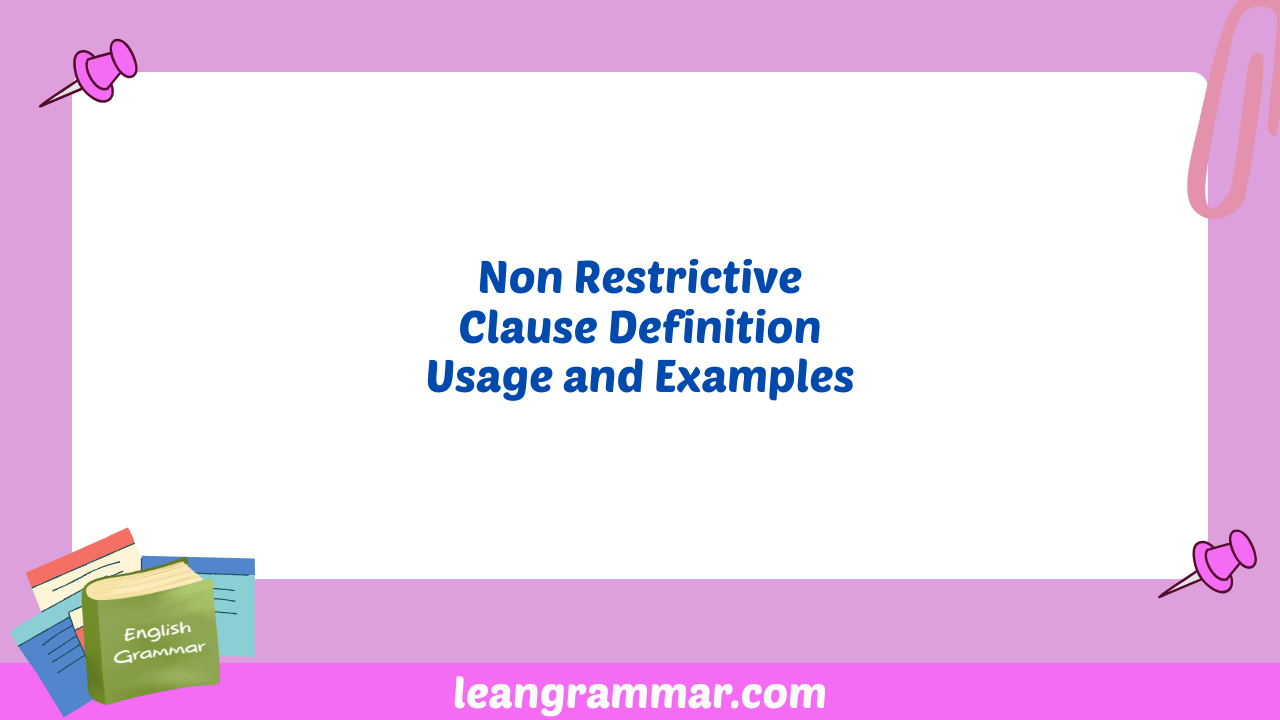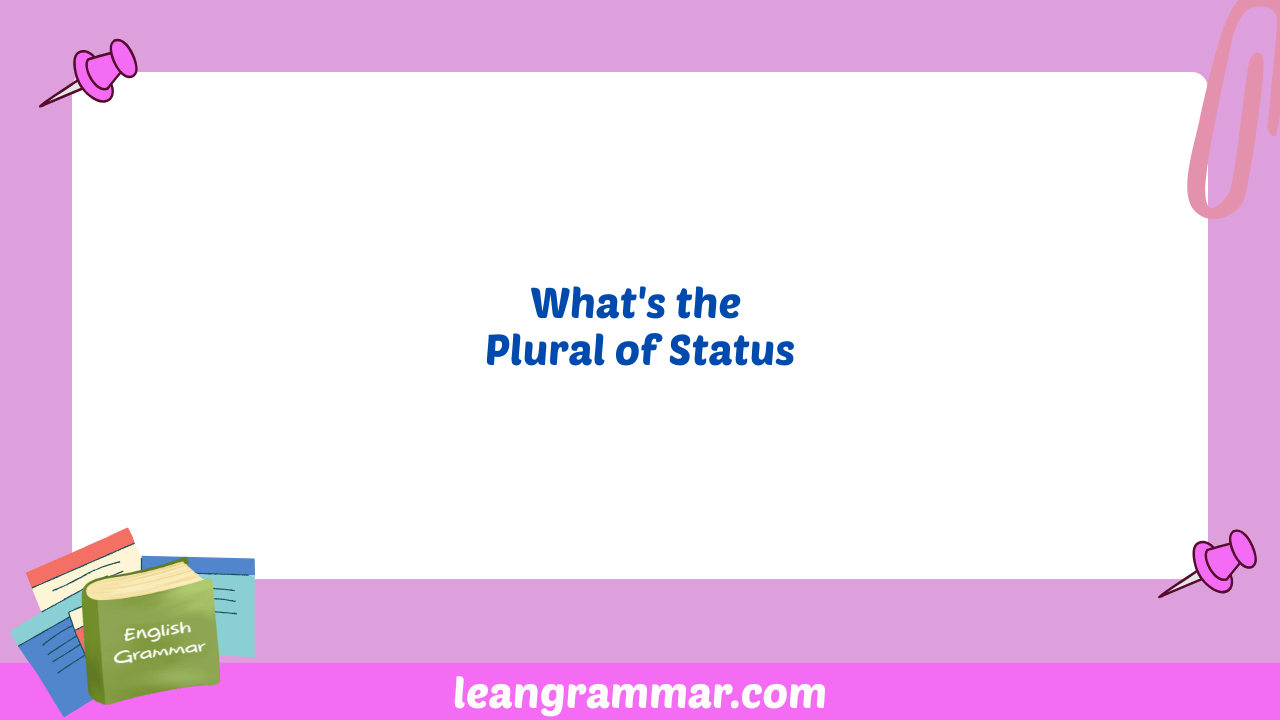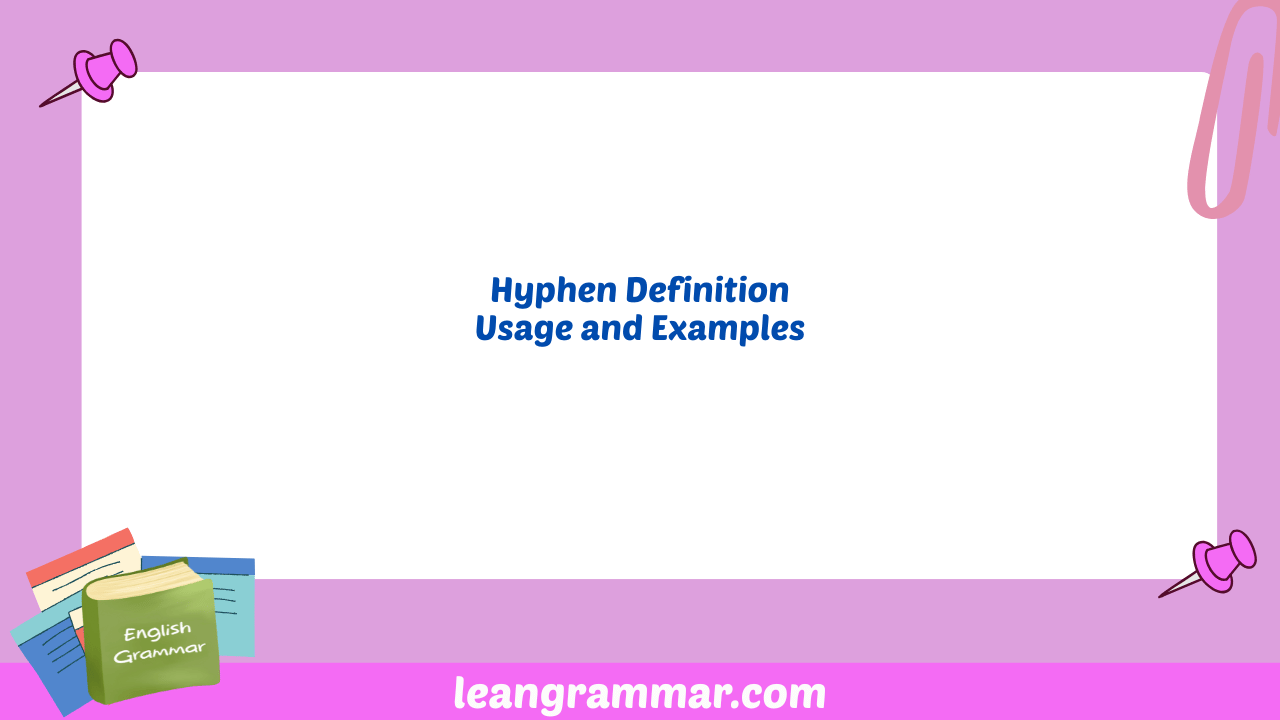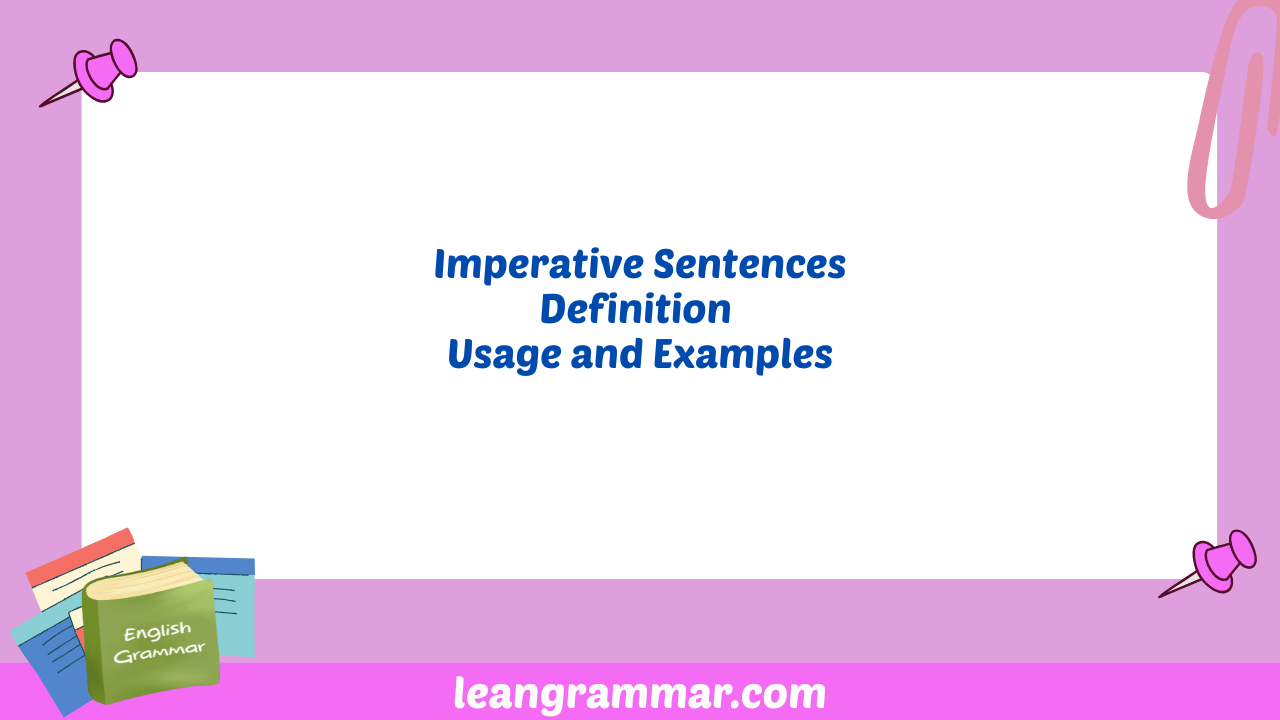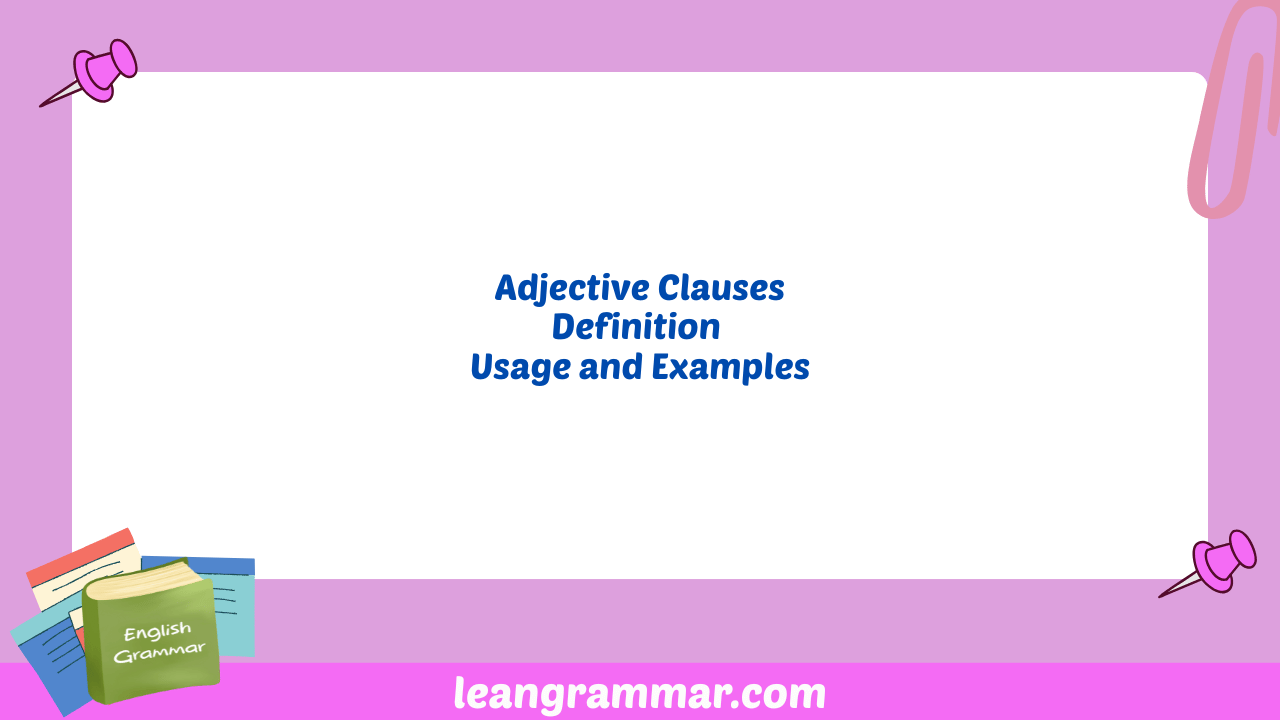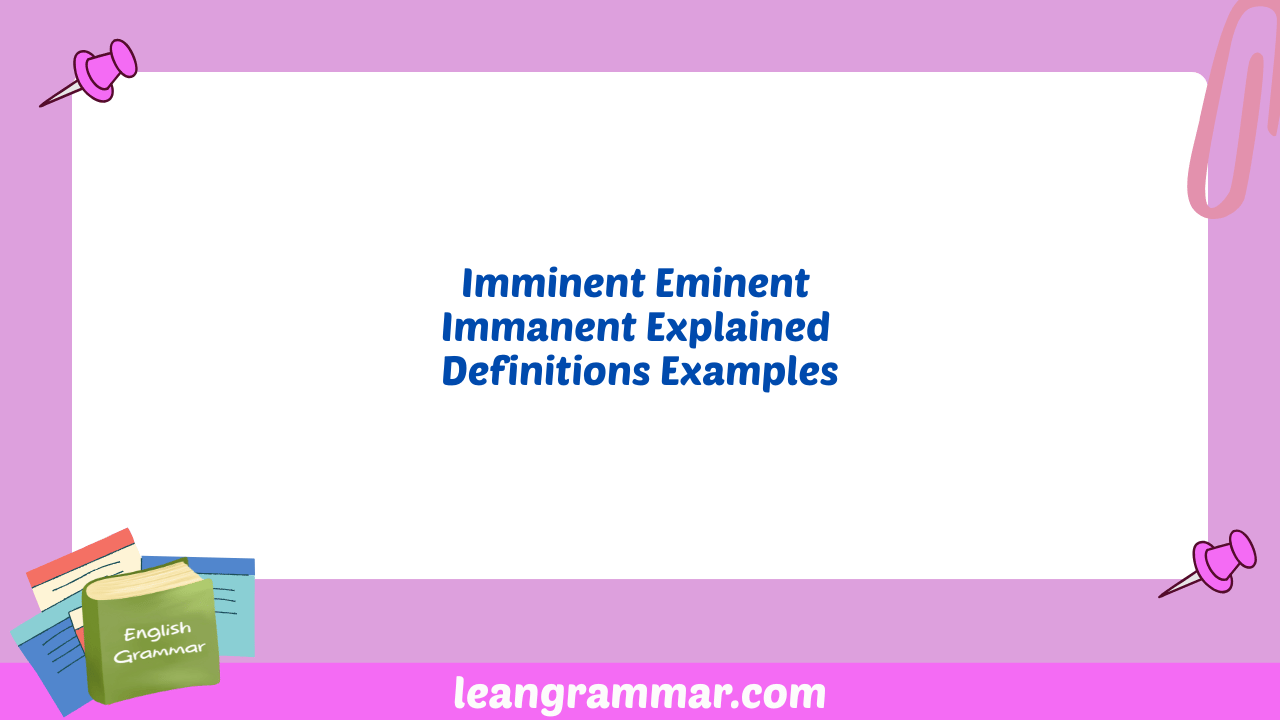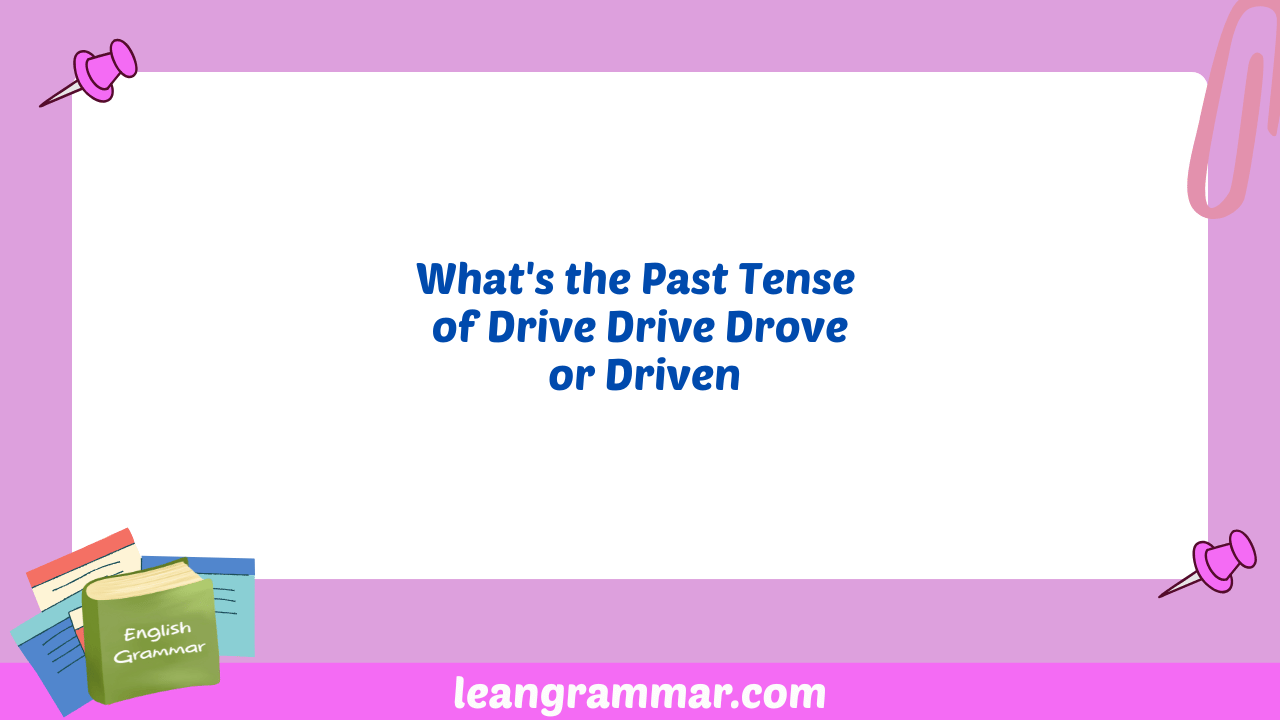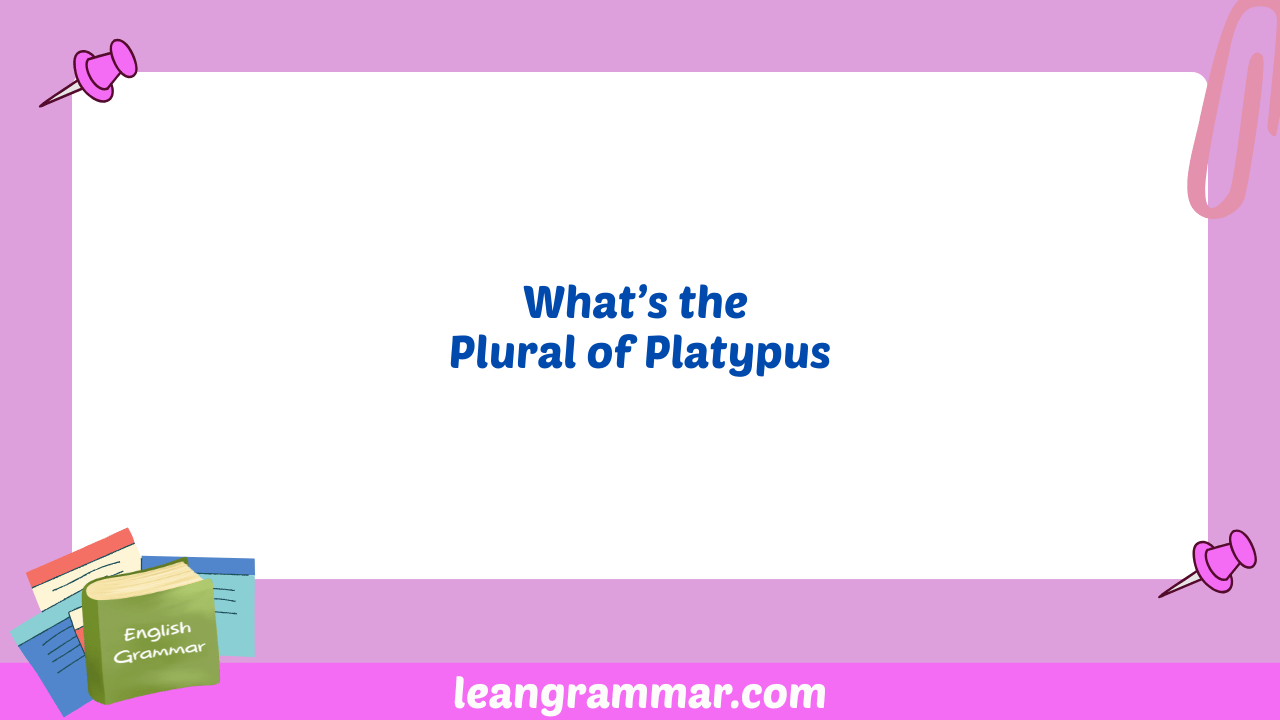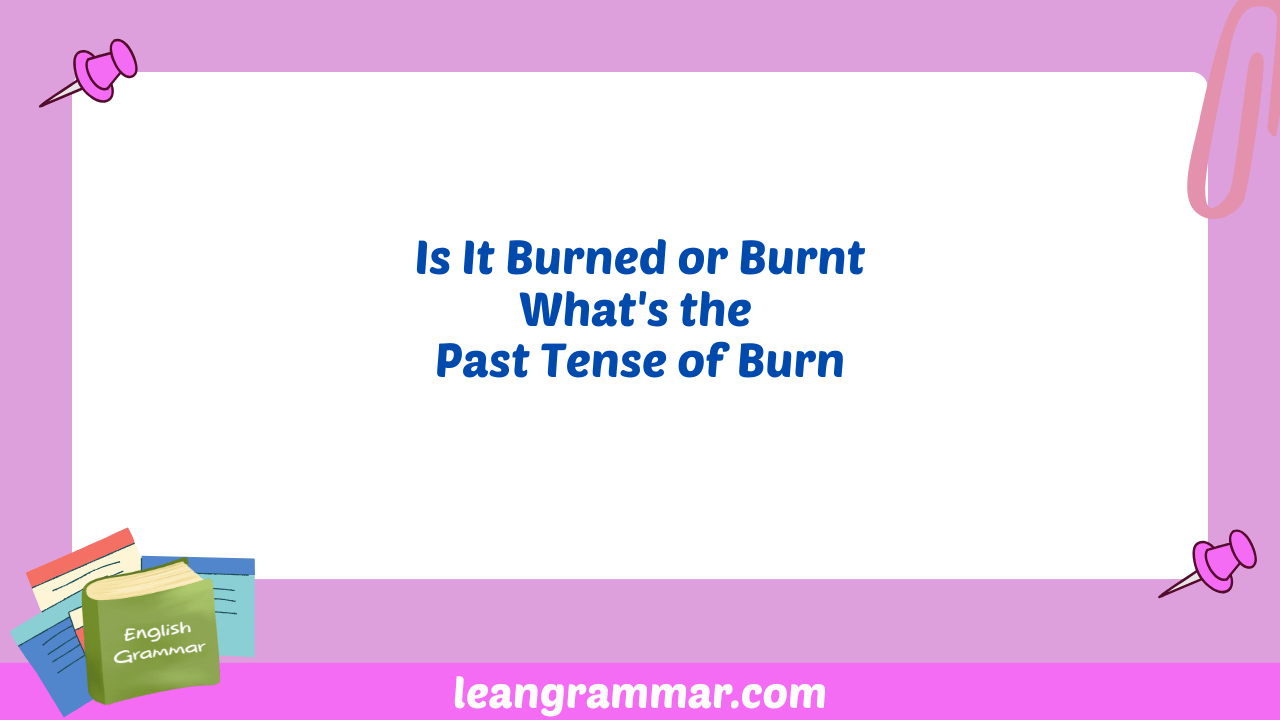Nonrestrictive Clauses: Definition, Usage, and Examples
Understanding nonrestrictive clauses is crucial for mastering English grammar and writing with precision. These clauses add extra, non-essential information to a sentence without changing its core meaning. This article provides a comprehensive guide to nonrestrictive clauses, covering their definition, structure, usage rules, common mistakes, and advanced applications. Whether you’re a student, writer, or English language … Read more
